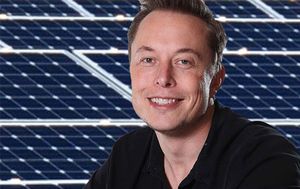 Vietnam was said to be “a Cold War activity,” part of a larger struggle for global supremacy between the U.S. and the late Soviet Union.
Vietnam was said to be “a Cold War activity,” part of a larger struggle for global supremacy between the U.S. and the late Soviet Union.
The description overlooked millions of deaths, and immense human suffering, dismissing it as a byproduct of something larger, a proxy war. Veterans of the conflict remain insulted by the characterization, but in historical terms it was accurate.
History will record Syria, then, as an “oil war activity,” just as 9-11 was an “oil war activity.” It is part of a larger struggle for global supremacy among the producers of oil and gas. The tragedy is that it’s not recognized as one.
Understanding that Syria is just one piece of a larger struggle, and understanding what that struggle is really all about, would give us a chance to win that struggle, but so far no one in power, not even President Obama, has made that connection publicly, and with sufficient urgency.

Struggles of this type tend to escalate and escalate until an immense climax that plunges the whole world into catastrophe. That is what happened as a result of the 19th century’s balance of power. Proxy wars were fought across Africa and Asia for decades, and an arms race developed, before the great nations of Europe finally got their war on and destroyed the system of monarchy that they had created after Napoleon.
In this way the Cold War was an aberration, in that it did not escalate. This was probably because both sides, almost from the very beginning of the conflict, possessed atomic weapons that could have created a nuclear winter across the world, one that at a minimum would have destroyed civilization, and which could have threatened the extinction of humanity.
You can date the beginnings of the oil war where you wish. You can date it from 1981, when President Ronald Reagan supported Saudi Arabia in its proxy war against the Soviet Union over Afghanistan, arming its mujahideen and creating Osama Bin Laden. You can date it, as I do, to 1933, and the creation of Aramco, an economic alliance between Texas oilmen and Saudi sheikhs.
You can, if you like, date it from 1859, and the discovery of oil in Pennsylvania, which led directly to the creation of Standard Oil and the post-Civil War boom. Or you can date it to the beginnings of the Industrial Revolution, in the 18th century, when James Watt’s steam engine made coal valuable as an industrial good.

That was its intent.
ISIS has sought to prove, to Islamic youth the world over, that there is no such thing as “civilization,” that it’s all a mask created by the exploitation of oil and Muslim youth, that it would be better to destroy all these works and start over, this time from a purer, more Wahhabist base. That’s what they’re about. The human bomb is a recruitment tool for ISIS, and it has worked brilliantly.
ISIS cannot be destroyed by bombs. I hate to say this to my Democratic friends, but it won’t be destroyed by arguments, either. This is not a “hearts and minds” sort of struggle. This is an economic struggle. And the only way to end it, short of (again) destroying mankind, is to end our dependence on fossil fuels.

Too many credit fracking with the current “low” oil price, and fracking has brought those low prices about. But it has done so by actually expanding the oil power. Lower prices make us even more dependent on oil than before, oil is a fungible good, Russia and Saudi Arabia have lots of it, and in the end fracking just leads us back onto the merry-go-round.
The International Energy Agency, in fact, has predicted that oil prices will be back up to $80/barrel within a few years. That means twice as much money going to the Wahhabi supporters of the ISIS ideology as before, twice as much going to Vladimir Putin as now, twice as much going into the hands of the Texas oil billionaires holding our political system hostage.
Enough!
Al Gore tried to argue for renewables based on politics, saying the future of the planet was at stake, and it is. But that argument failed. You can’t fight economics with politics. I’m making a national security argument for renewables, but I suspect that, too, will fail, and for the same reason.

It’s the fossil fuel advocates that are turning to politics today. The efforts by Republican Governors, fueled by oil money, to halt the progress of renewables, are evidence that we are winning the economic war. The efforts by Britain’s oil-fueled Conservative government to reject renewables, supposedly on behalf of nuclear, and the efforts of Australia’s “Liberal” government to halt renewables, supposedly on behalf of coal, are evidence that we are winning the economic war. The success of Alberta’s New Democrats, and Canada’s Liberals, in rolling-back that country’s tar sands are evidence that renewables can even beat these arguments back.
In 2015, solar and wind energy achieved crossover. If you install solar panels on your roof today, or if your utility invests in a wind farm today, the capital cost of that facility will be returned to you, in the form of energy, over 10-20 years, and you will spend less money on energy that way than you would buying gasoline from a pump, or natural gas fired electricity from the grid.

But solar prices don’t have to rise. Wind farm prices don’t have to rise. Nor do the costs of other forms of renewable energy – cellulosic ethanol, tidal energy, even geothermal energy which taps the nuclear forces deep within our planet.
The Sun shines. The winds blow. The tides roll. The grass grows. We live on a molten rock.
This is the struggle of our time. This is the economic war that must be fought, and that can be won. Now. If we only recognize it, and treat it with the urgency it deserves.










